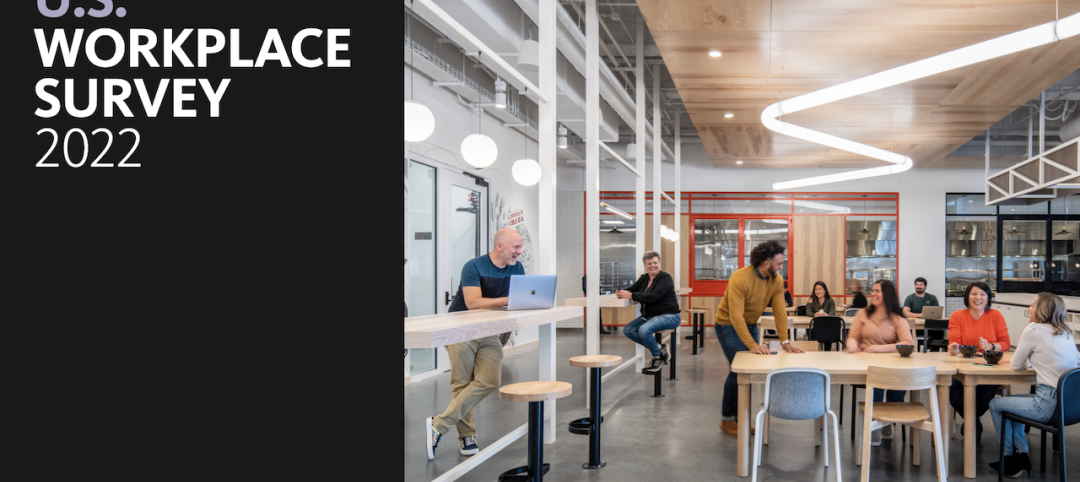Engineering and construction CEOs are more optimistic this year than in previous years, according to PwC’s 2014 Global CEO Survey. Forty-one percent of respondents expect to grow over the next 12 months, up from 31% last year.
This and other big-picture facts are available in the survey, which provides multiple “snapshots” of the engineering and construction sectors, including growth markets, government impact on the industry, transformative global trends, and concerns about sustainability and climate trends.
Here are some of the snapshots we found the most interesting (read the full report):
- 50% of CEOs in the engineering and construction sector believe the global economy will improve over the next 12 months; 9% believe it will decline
- 78% of sector CEOs are concerned about how governments will respond to deficit and debt in the next year—this is the concern that the highest number of engineering and construction CEOs reported worrying about
- 76% of sector CEOs are worried about high and volatile raw material prices
- Concerns about infrastructure gaps are a consistent concern—47% of sector CEOs reported concerns that inadequacy of infrastructure could hurt growth, 50% think that infrastructure think it should be one of their government’s top 3 priorities, and 41% feel that the government is ineffective (as opposed to 33% who believe that the government is effective)
- The U.S. topped the list of growth markets, and the Middle East ranked much higher as growth markets for engineering and construction CEOs than for other sectors
- Cost reduction heads the list of restructuring activities
- 69% of sector CEOs believe that technological advances such as the digital economy, Big Data, and social media will be the biggest transformative trend for their businesses in the next year
- E&C CEOs are significantly more worried about the availability of key skills in their workforces than are other industries.
- 89% of E&C CEOs say it’s important for their company to try and reduce their environmental footprint.
- 59% of E&C CEOs believe that resource scarcity and climate change will transform their business
For more, read the full report.
Related Stories
Student Housing | Mar 5, 2023
Calif. governor Gavin Newsom seeks to reform environmental law used to block student housing
California Gov. Gavin Newsom wants to reform a landmark state environmental law that he says was weaponized by wealthy homeowners to block badly needed housing for students at the University of California, Berkeley.
Green Renovation | Mar 5, 2023
Dept. of Energy offers $22 million for energy efficiency and building electrification upgrades
The Buildings Upgrade Prize (Buildings UP) sponsored by the U.S. Department of Energy is offering more than $22 million in cash prizes and technical assistance to teams across America. Prize recipients will be selected based on their ideas to accelerate widespread, equitable energy efficiency and building electrification upgrades.
Windows and Doors | Mar 5, 2023
2022 North American Fenestration Standard released
The 2022 edition of AAMA/WDMA/CSA 101/I.S.2/A440, “North American Fenestration Standard/Specification for windows, doors, and skylights” (NAFS) has been published. The updated 2022 standard replaces the 2017 edition, part of a continued evolution of the standard to improve harmonization across North America, according to a news release.
AEC Innovators | Mar 3, 2023
Meet BD+C's 2023 AEC Innovators
More than ever, AEC firms and their suppliers are wedding innovation with corporate responsibility. How they are addressing climate change usually gets the headlines. But as the following articles in our AEC Innovators package chronicle, companies are attempting to make an impact as well on the integrity of their supply chains, the reduction of construction waste, and answering calls for more affordable housing and homeless shelters. As often as not, these companies are partnering with municipalities and nonprofit interest groups to help guide their production.
Modular Building | Mar 3, 2023
Pallet Shelter is fighting homelessness, one person and modular pod at a time
Everett, Wash.-based Pallet Inc. helped the City of Burlington, Vt., turn a municipal parking lot into an emergency shelter community, complete with 30 modular “sleeping cabins” for the homeless.
Codes | Mar 2, 2023
Biden Administration’s proposed building materials rules increase domestic requirements
The Biden Administration’s proposal on building materials rules used on federal construction and federally funded state and local buildings would significantly boost the made-in-America mandate. In the past, products could qualify as domestically made if at least 55% of the value of their components were from the U.S.
Industry Research | Mar 2, 2023
Watch: Findings from Gensler's latest workplace survey of 2,000 office workers
Gensler's Janet Pogue McLaurin discusses the findings in the firm's 2022 Workplace Survey, based on responses from more than 2,000 workers in 10 industry sectors.
AEC Innovators | Mar 2, 2023
Turner Construction extends its ESG commitment to thwarting forced labor in its supply chain
Turner Construction joins a growing AEC industry movement, inspired by the Design for Freedom initiative, to eliminate forced labor and child labor from the production and distribution of building products.
Multifamily Housing | Mar 1, 2023
Multifamily construction startup Cassette takes a different approach to modular building
Prefabricated modular design and construction have made notable inroads into such sectors as industrial, residential, hospitality and, more recently, office and healthcare. But Dafna Kaplan thinks that what’s held back the modular building industry from even greater market penetration has been suppliers’ insistence that they do everything: design, manufacture, logistics, land prep, assembly, even onsite construction. Kaplan is CEO and Founder of Cassette, a Los Angeles-based modular building startup.
Airports | Feb 28, 2023
Data visualization: $1 billion earmarked for 2023 airport construction projects
Ninety-nine airports across 47 states and two territories are set to share nearly $1 billion in funding in 2023 from the Federal Aviation Administration. The funding is aimed at help airports of all sizes meet growing air travel demand, with upgrades like larger security checkpoints and more reliable and faster baggage systems.

















